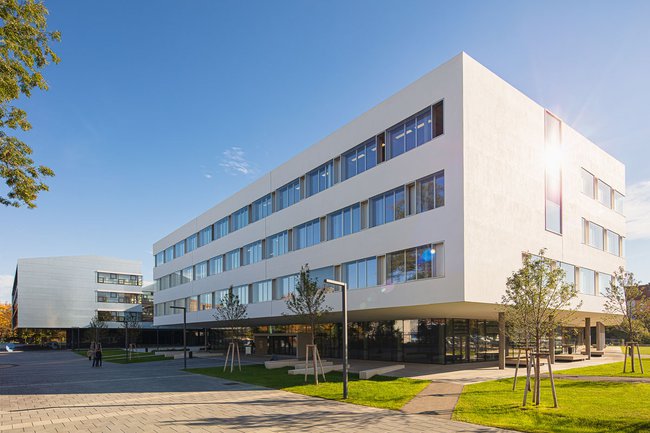Consumer Behaviour against Climate Change
St. Pölten UAS Examines Approaches to Strengthening Circular Economy through Consumer Behaviour

The transition towards a circular economy is generally considered an effective strategy against the waste of resources, environmental pollution, and climate change. So far, circular economy approaches have focused mainly on technological solutions and therefore primarily on companies. Within the framework of the research project “CE4ALL”, however, the St. Pölten University of Applied Sciences has now examined the impact of consumers on circular economy and has identified how sustainable consumption that supports circular economy can be promoted.
Repair, Reuse, Recycle
The advancing climate change, environmental pollution, and a shortage of resources require a transformation away from the currently predominant linear economic system characterised by the principles of “take, make, waste” and towards a more sustainable circular economy (“repair, reuse, recycle”). While new recycling methods and the reutilisation of waste products are already receiving much attention, consumer behaviours and the involvement of broad sections of the population have not been sufficiently take into account to date.
Circular Economy Requires Changes in Consumer Behaviour
“Without changes in consumer behaviour, however, the concept of circular economy is not effective enough. For this reason, it takes suitable and milieu-specific measures in order to systematically change consumer behaviours in such a way that a circular economic system is promoted”, explains Alexandra Anderluh, Senior Researcher at the Carl Ritter von Ghega Institute for Integrated Mobility Research of the St. Pölten UAS and the head of the project.
“Circular Economy Cube” Renders Potentials Visible
In the project CE4ALL, Anderluh explores approaches to strengthening circular economy-promoting consumer behaviours together with researchers of the Institute for Innovation Systems and the Ilse Arlt Institute for Social Inclusion Research at the St. Pölten UAS as well as colleagues from tbw research GesmbH. “We took a thorough look at how social and personal circumstances affect flexibilities in consumer behaviour, and which steps are necessary in order to turn the current linear economic system into a circular economy. For this purpose, we developed a ‘Circular Economy Tube’ that brings the principles of circular economy (reduce, repair, reuse, etc.) together with product groups and social environments”, says Anderluh.
Based on this Circular Economy Cube, the project team worked out potentials for change. The scientific basis for the Circular Economy Cube was provided by a systematic literature analysis and by surveys among focus groups regarding consumers’ needs, motives, and attitudes as well as their purchasing and usage behaviours. In addition, an expert panel was formed, and the acquired knowledge was applied in a nationwide survey.
Result: Incentives Are Decisive, Not Social Background
“Within the framework of the study, a person’s belonging to a certain social milieu turned out to be not the most decisive factor, whereas the matter of getting by with one’s income, as indicated by the surveyed persons, definitely has an impact on people’s affinity to circular economy”, summarises Anderluh.
In the study, certain incentives showed partially good results in terms of promoting behaviours that boost a circular economic system, such as the “Reparaturbonus” (a discount on having devices repaired) which is already successfully used in practice.
Outlook: Further Product Groups and Interdependencies
Based on the insights gained in the project, some first target group-specific measures can be derived for strengthening behaviours that promote circular economy. “Future research ought to address further product groups as well as the consequences and interdependencies of the associated measures”, says Anderluh.
CE4ALL: Circular Economy for All – Incentives and Enablers for, and Inhibitors of Sustainable Consumption
The project involved researchers of the Carl Ritter von Ghega Institute for Integrated Mobility Research, the Institute for Innovation Systems, and the Ilse Arlt Institute for Social Inclusion Research at the St. Pölten UAS. The project partner company was tbw research GesmbH. The project received funding from FFG means (www.ffg.at).
